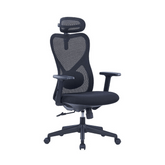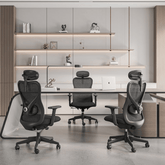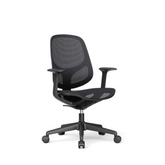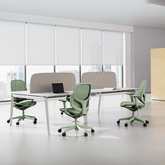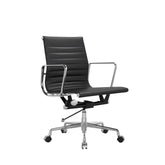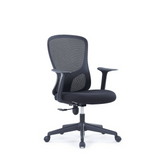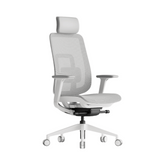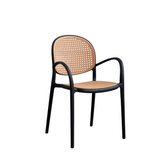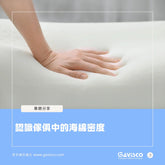Introduction
The Business and Institutional Furniture Manufacturers Association (BIFMA) plays a crucial role in defining product standards and safety in the office furniture industry. As a leading authority, BIFMA sets guidelines for safety, durability, and sustainability, ensuring that office furniture manufacturers adhere to the highest quality standards. With the increasing focus on ergonomic design, environmental responsibility, and user safety by businesses, BIFMA's influence has become indispensable.
This article will explore the relationship between BIFMA and the office furniture industry, introducing what BIFMA standards are, BIFMA certification, and how BIFMA shapes the design, production, and overall quality of office furniture.

Table of Contents
- Introduction
- Business and Institutional Furniture Manufacturers Association (BIFMA)
- American National Standards Institute (ANSI)
- ANSI/BIFMA Standards and Certification
- ANSI/BIFMA Testing Methods
- Conclusion
Business and Institutional Furniture Manufacturers Association (BIFMA)
Established in 1973, the Business and Institutional Furniture Manufacturers Association (BIFMA) is a nonprofit organization representing the interests of commercial furniture manufacturers. BIFMA's mission is to promote the development of safe, sustainable, and high-quality office furniture through the creation of performance standards and certifications. The association collaborates with manufacturers, designers, and industry stakeholders to ensure that office furniture meets the evolving needs of modern workspaces.
BIFMA standards are globally recognized and have become benchmarks for quality and safety in the office furniture industry.
American National Standards Institute (ANSI)
The American National Standards Institute (ANSI) is an organization dedicated to developing quality standards to enhance the quality of life for Americans and strengthen the competitiveness of American businesses. It has established over 10,000 standards aimed at protecting consumers, the workforce, and the general public. ANSI standards cover various areas, including office furniture, emphasizing not only the performance levels of products but also their safety and sustainability.
ANSI/BIFMA Standards and Certification
To obtain ANSI/BIFMA certification, office furniture must undergo a series of rigorous tests to assess safety, functionality, and sustainability. During testing, furniture is subjected to various extreme conditions to ensure it can withstand the pressures and wear of everyday use. Only furniture that passes these tests can receive ANSI/BIFMA certification.
Testing for office furniture is primarily based on corresponding standards from different importing countries, such as JIS, GB, ISO, and BIFMA.
BIFMA offers multiple certification programs that allow manufacturers to demonstrate their ability to meet their stringent standards. One of the prominent certifications is BIFMA LEVEL, which evaluates the environmental and social impact of office furniture products. This certification is highly regarded in the industry, helping manufacturers showcase their commitment to sustainability and responsible business practices.
In addition to the LEVEL certification, BIFMA also provides certifications regarding safety, durability, and ergonomics to ensure that office furniture meets the highest quality standards.
For example, BIFMA has developed a comprehensive set of performance standards that guide the design and manufacture of office furniture. These standards cover the following key aspects:
- Safety: Ensuring that office furniture does not contain hazardous materials and meets strict safety requirements.
- Durability: Establishing standards for the lifespan and resilience of office furniture under normal use.
- Ergonomics: Promoting designs that support user comfort and health, especially in chairs and workstations.

ANSI/BIFMA Testing Methods
ANSI and BIFMA (Business and Institutional Furniture Manufacturers Association) have collaborated to establish a series of testing standards and specifications for office furniture. These standards and regulations are designed to ensure the safety, durability, and functionality of office furniture to meet the needs of modern office environments. Strict and comprehensive standards have been developed for the stability, strength, and fatigue performance of office furniture. These standards cover various categories including office chairs, filing cabinets, sofas, office desks, modular panel systems, and small office and home office furniture. BIFMA 5.1-5.7 specify detailed testing content and methods for these different types of furniture. Below are examples related to office chairs and office desks:
Office Chair Testing
ANSI/BIFMA X5.1 is the standard for physical performance testing of office chairs. This standard specifies a series of tests that office chairs need to undergo to ensure they can withstand various pressures and wear during use. These tests include but are not limited to:
- Backrest static strength test: Tests the strength and stability of the backrest of the office chair to verify if it can maintain structural integrity under normal use.
- Five-prong static load test: Evaluates the stability of the office chair's five-prong base when subjected to pressure.
- Dynamic impact test: Simulates impacts that the office chair may experience during use to verify the strength of its structure.
- Swivel test: Tests the stability and durability of the office chair during swiveling.
- Tilt mechanism fatigue test: Evaluates the durability of the office chair's tilt mechanism to ensure it can work stably for a long time.
- Seat fatigue test: Simulates the stress on the seat of the office chair during use to verify if it can remain comfortable and durable during prolonged use.
Office Desk Testing
ANSI/BIFMA X5.5 is the standard for physical performance testing of desks. This standard specifies a series of tests that desks need to undergo to ensure they can withstand various pressures and wear during use. These tests include but are not limited to:
- Drawer open stability test: Evaluates the stability of the desk when drawers are opened.
- Vertical load stability test: Tests the stability of the desk when subjected to vertical loads.
- Desk with casters horizontal stability test: Evaluates the stability of desks with casters during horizontal movement.
- Stability test for desks with height >1067mm: Stability test for desks with a height exceeding 1067mm.
- Static load test: Evaluates the strength and stability of the desk when subjected to static loads.
- Tabletop fatigue load test: Simulates the stress on the desktop during use to verify its durability during prolonged use.
- Drop test: Tests the durability and structural integrity of the desk during a drop.

Summary
The Business and Institutional Furniture Manufacturers Association (BIFMA) is a cornerstone of the office furniture industry, providing essential standards and certifications to ensure the safety, durability, and sustainability of office furniture. BIFMA's impact goes beyond setting standards; it actively promotes research and sustainable practices, shaping the future of office furniture design and manufacturing.
For businesses and consumers seeking high-quality office furniture that meets the highest industry standards, BIFMA-certified products offer reliable solutions. By following BIFMA guidelines, manufacturers can ensure that their products not only meet but exceed the expectations of modern workplaces.
